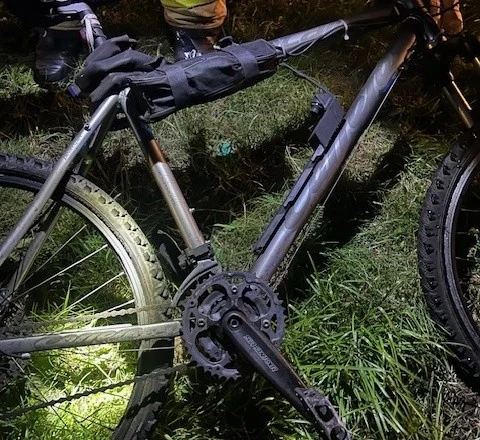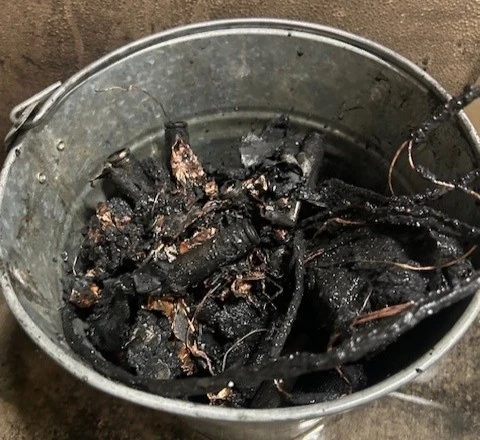Many portable devices such as laptop computers, mobile phones, children’s toys, e-scooters and e-cigarettes may contain rechargeable lithium-ion batteries. They are lightweight, energy dense and long-lasting but can be more volatile than traditional batteries.
Most modern devices with rechargeable batteries contain lithium-ion batteries. Occasionally, if a lithium-ion battery is improperly charged, handled, stored or disposed of there is a risk of overheating, catching fire or explosion. This also increases the risk of a house fire, garage fire or personal injury.


General Safety Advice for Lithium-Ion Batteries
The following messages can be useful in communicating the risk and minimising the risk of fire to the public:
-
Always use the charger that came with your device or a genuine replacement from a trusted supplier.
- Unplug devices once fully charged. Avoid leaving them plugged in overnight.
- Charge batteries in a safe, visible location. Avoid charging near flammable materials or in escape routes.
-
Charge on a hard, flat surface. Use stable, non-flammable surfaces like a kitchen worktop. Avoid soft furnishings or carpets.
-
Charge devices while you're awake and nearby. Avoid charging overnight or when you're out of the house.
-
Disconnect the charger once the battery is full. Continuous charging increases fire risk.
- Stop using batteries that are swollen, damaged, or overheating.
- Don’t charge or store batteries in very hot or cold environments.
-
Charge in ventilated areas, avoid enclosed spaces.
-
Keep batteries away from direct sunlight and heat sources.
- This traps heat and increases fire risk.
- This can cause overheating.
- Don’t charge under pillows or blankets.
- Cheap chargers and batteries may not meet UK safety standards and can be dangerous.
- Especially in areas where you charge high-capacity batteries like e-bikes or scooters.
Safe Disposal Guidelines
-
Never throw lithium batteries in household rubbish.
-
Look for the crossed-out wheelie bin symbol - this means the item must be recycled.
- Tape over terminals with electrical tape to prevent short circuits and fire risk.
- Store in a cool, dry place until disposal.
- Do not mix lithium batteries with other types (e.g., alkaline or NiMH).
Supermarkets and large retailers (selling over 32kg of batteries/year) must provide battery recycling bins. These bins accept:
- AA, AAA, 9V, button cells
- Rechargeable batteries
- Battery packs from devices (if removable)
- If the battery can’t be removed (e.g., in e-cigarettes or calculators), treat the whole item as electrical waste.
- Take it to a household waste recycling centre or return it to a retailer when buying a replacement.
Workplace Safety Advice
The following messages can be useful in communicating the risk and minimising the risk of fire to the public:
- Conduct regular assessments for areas where lithium-ion batteries are used or stored.
- Use fire-resistant storage solutions, especially for high-capacity batteries like those in e-bikes or scooters.
- Establish clear procedures for safe charging, including supervision and designated charging zones.
-
Ensure staff are trained in battery safety, including how to identify and respond to battery faults.
- Have a plan in place for dealing with battery fires or thermal runaway incidents.
Business and Bulk Disposal
- Businesses must follow ADR regulations for transporting hazardous goods like lithium-ion batteries.
- Use UN-approved containers and consider partnering with certified disposal companies.
- Segregate batteries by chemical type (e.g., LiFePO4, LiCoO2) for proper recycling.
Where to Dispose of Lithium Batteries in Wales
Some local councils in Wales offer kerbside collection for small portable batteries. Check your local authority’s website to see if this service is available in your area.
Large retailers and supermarkets that sell batteries (and sell more than 32kg per year) are legally required to provide in-store battery recycling bins.
These bins accept:
- AA, AAA, 9V, and button cell batteries
- Rechargeable batteries
- Batteries from small electronics (e.g., phones, cameras)
All local authorities in Wales provide battery recycling facilities at their HWRCs.
You can take:
- Lithium-ion batteries from laptops, phones, power tools
- Battery packs from e-bikes or scooters (check with the centre first)
- Damaged or swollen batteries (handle with care and tape terminals)
If the battery is non-removable, recycle the entire device at an Household Waste Recycling Centres (HWRC) or through a Waste Electrical and Electronic Equipment (WEEE) collection point.
For large or damaged lithium batteries, or if you're unsure, use the UK Government’s hazardous waste disposal finder to locate a suitable service near you.

